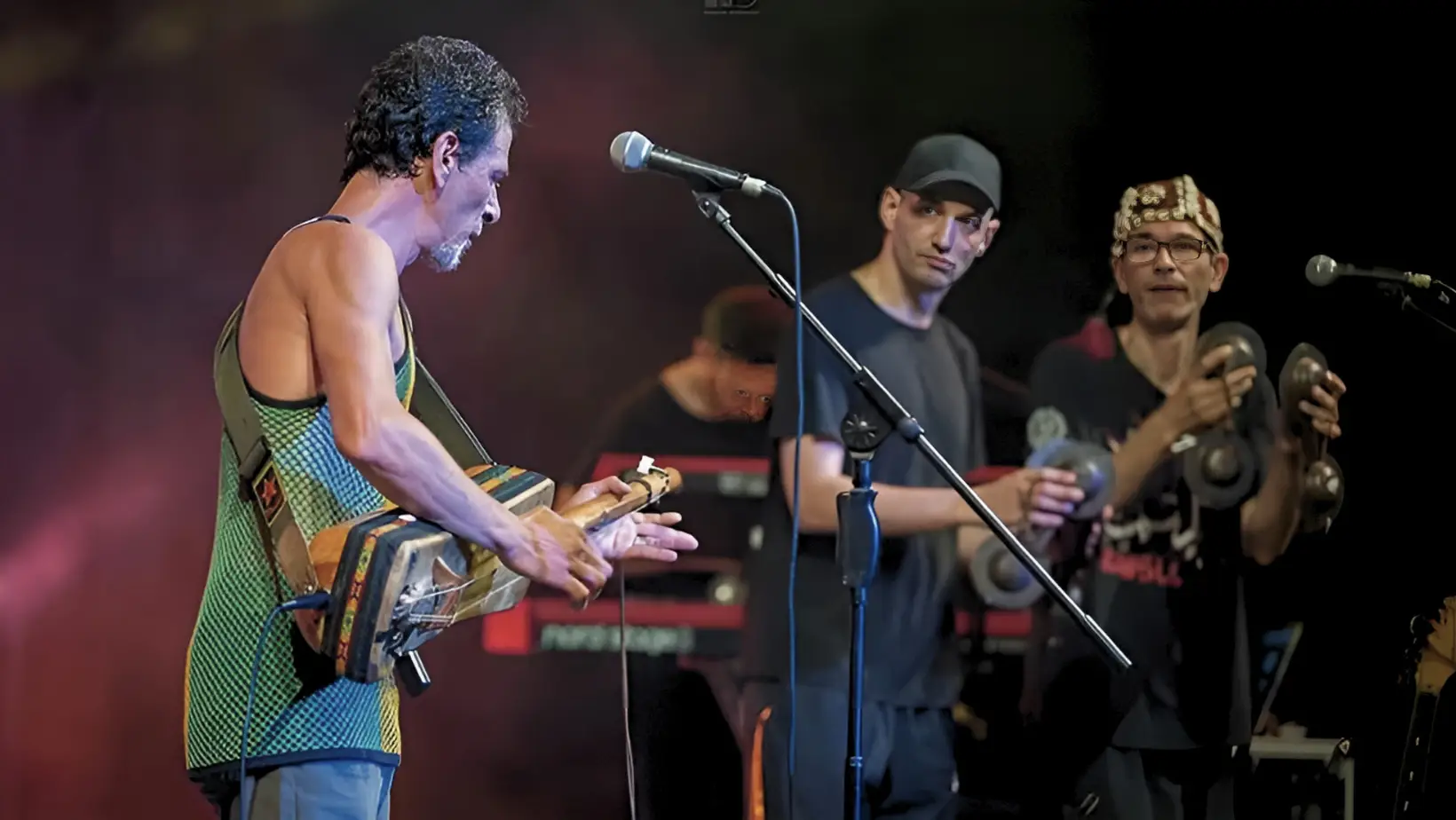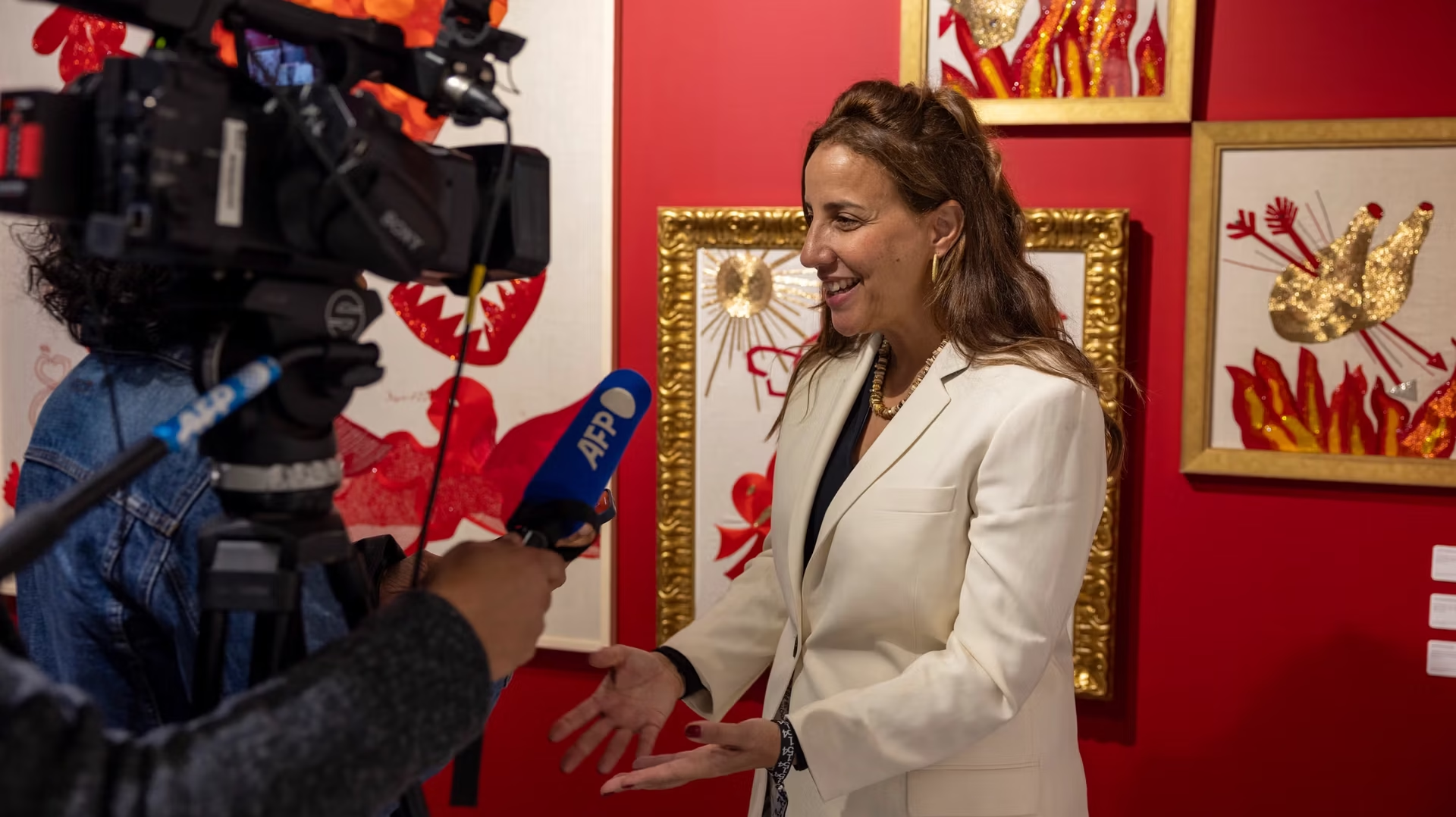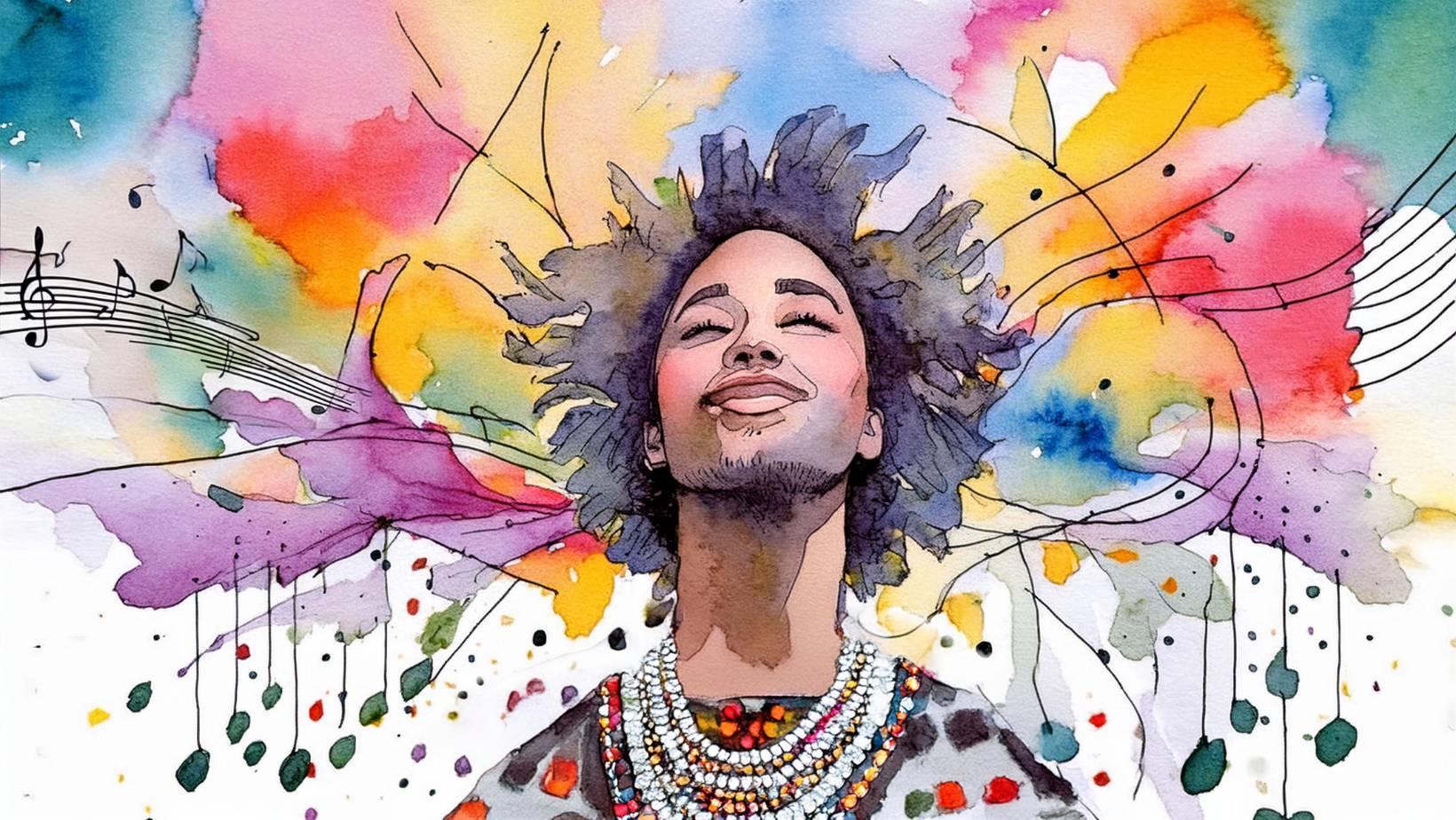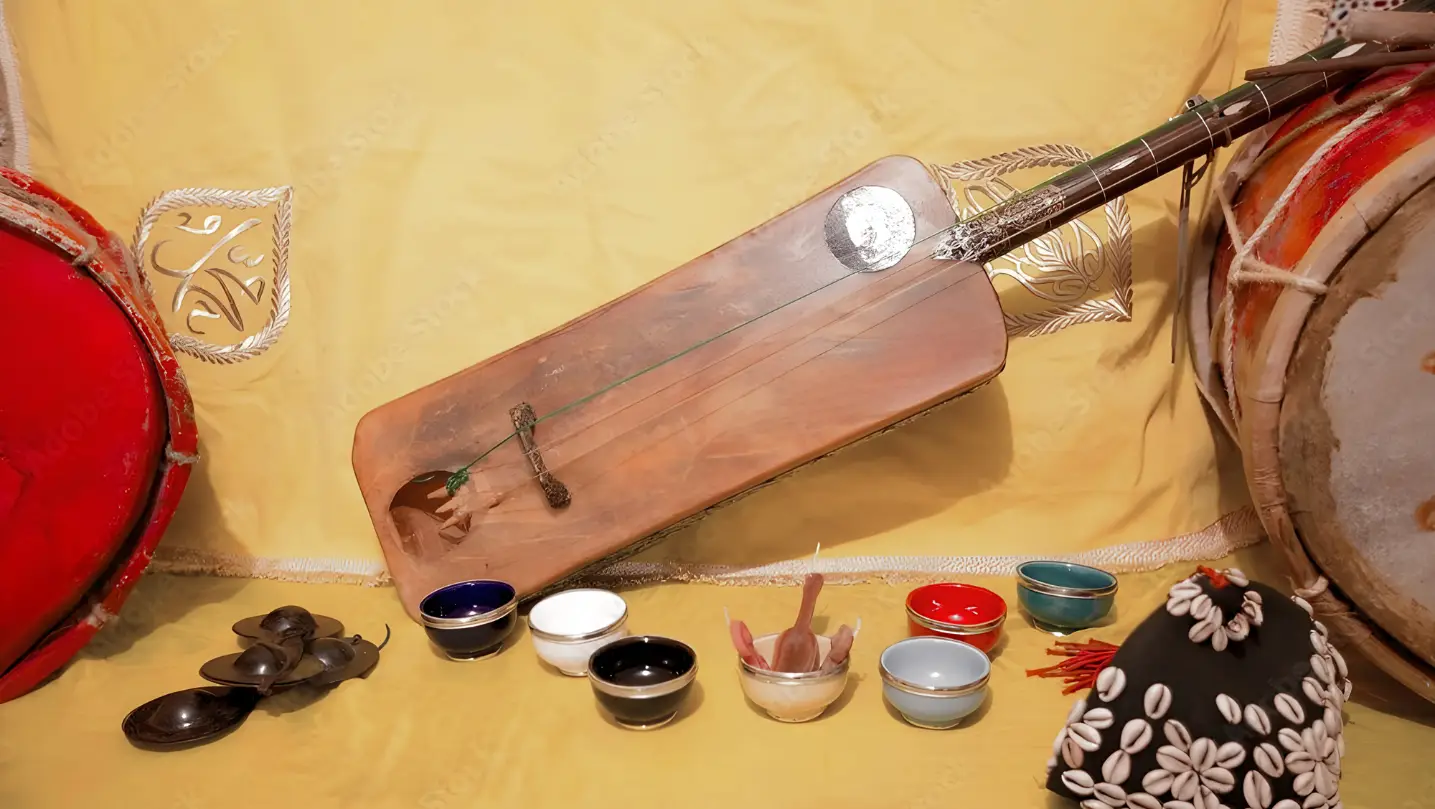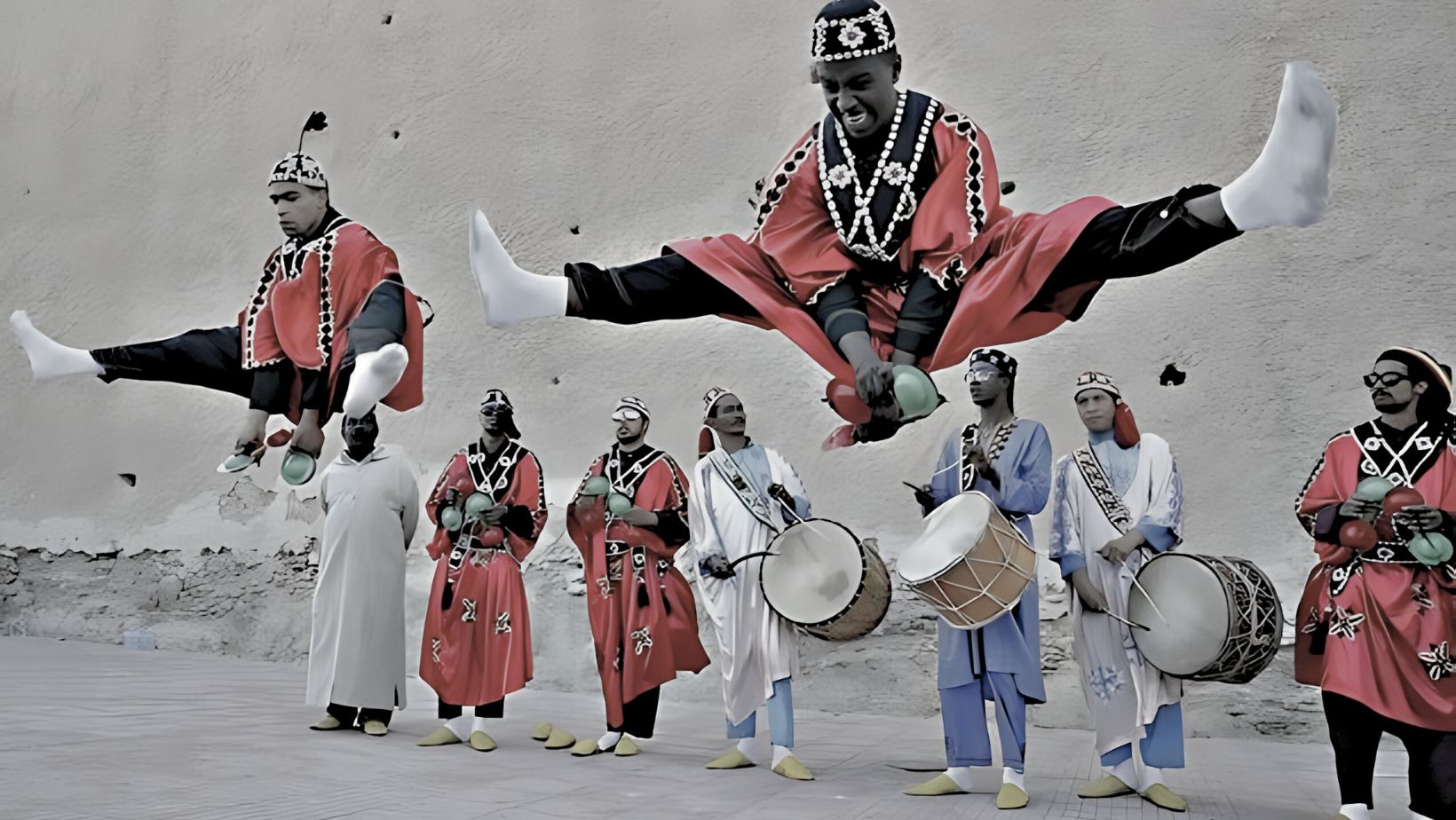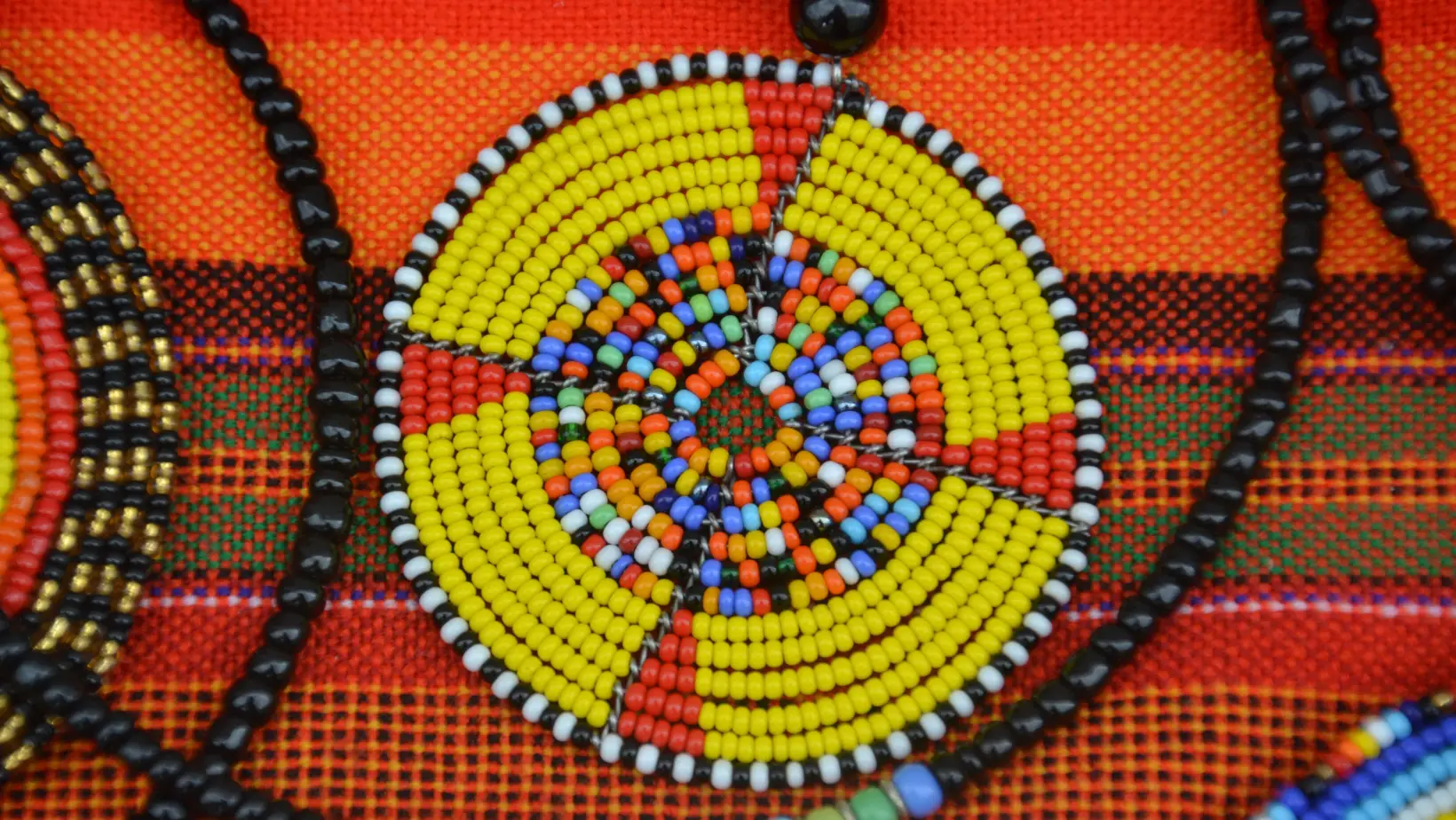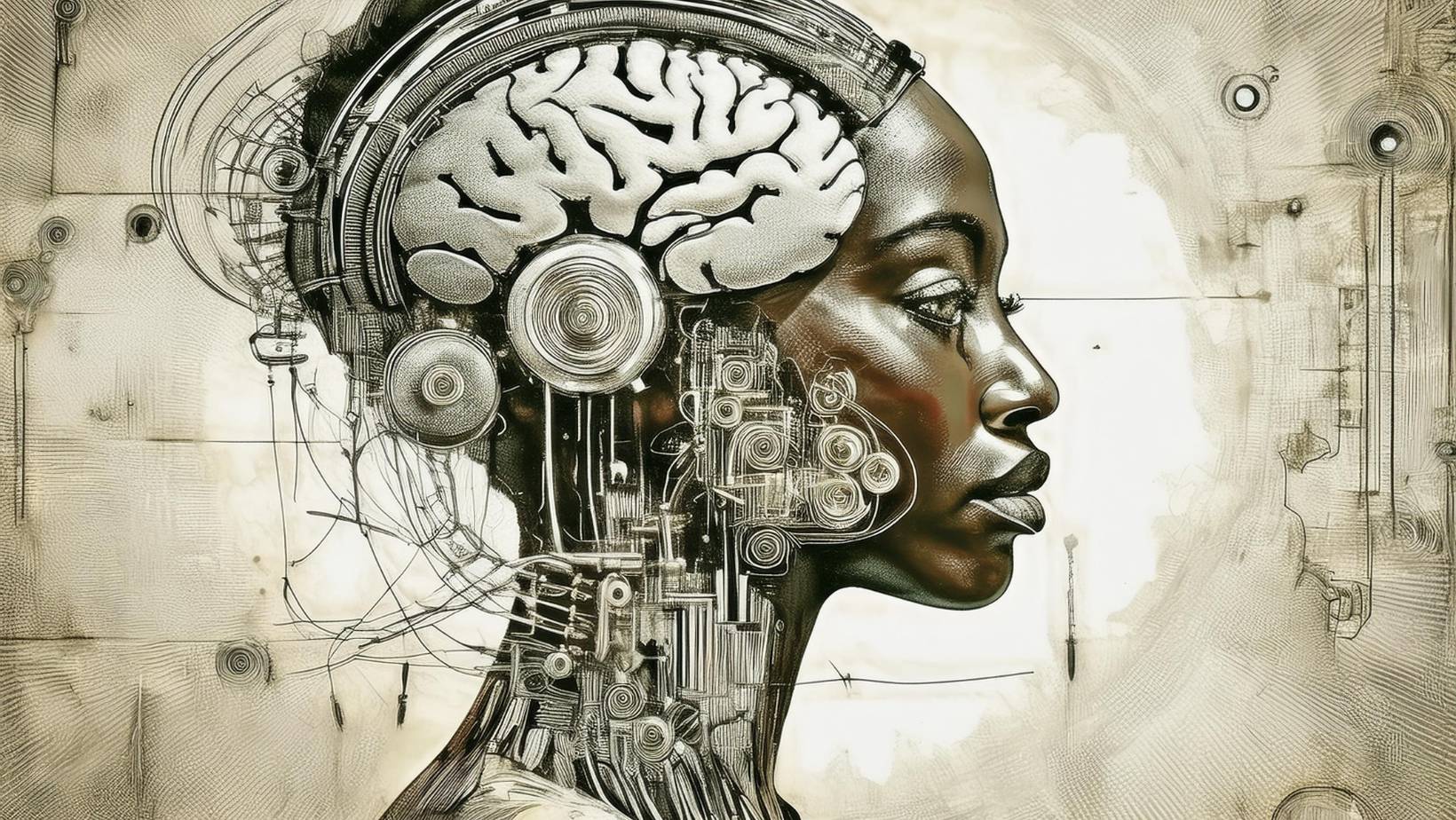Gnawa music, a vibrant thread in the fabric of Moroccan culture, has transcended its local origins to become a global fusion phenomenon. This mystical music, rooted in the spiritual and historical experiences of the Gnawa people, has captivated audiences worldwide, merging with various musical genres to create a unique, cross-cultural sound. In this article, we explore the journey of Gnawa music from the streets of Morocco to the international stage, highlighting its evolution and influence across global music scenes.
The Journey to Global Recognition
Gnawa music’s journey to international acclaim began with its recognition as a profound cultural expression within Morocco. The music’s hypnotic rhythms and spiritual depth resonated beyond its initial context, attracting global artists and musicians. In the 1990s, Gnawa music began to seep into the Western music consciousness, with collaborations that introduced its rich tones to a broader audience.
Key Collaborations and Festivals
One pivotal moment in the globalization of Gnawa music was the collaboration between Moroccan musicians and international artists. Figures such as Randy Weston, Adam Rudolph, and Peter Brötzmann played significant roles in integrating Gnawa music with jazz, creating a fusion that highlighted the versatility of Gnawa rhythms and melodies.
Moreover, the annual Gnaoua World Music Festival in Essaouira has been instrumental in showcasing this genre on the global stage. Since its inception, the festival has drawn artists and audiences from around the world, facilitating cross-cultural exchanges and further embedding Gnawa music into the global music scene.
Gnawa Music in Contemporary Fusion
As Gnawa music continues to influence global music, artists from various genres are exploring its potential. Fusion projects have successfully blended Gnawa with genres such as blues, reggae, and even electronic music. These collaborations have not only enriched the global music landscape but also ensured the preservation and evolution of Gnawa music.
An example of such fusion is the work of artists like Hassan Hakmoun and Malika Zarra, who have combined Gnawa music with elements of rock, pop, and jazz, appealing to a diverse, modern audience.
The Cultural Impact of Gnawa Music Worldwide
The global rise of Gnawa music has had a profound cultural impact, promoting a greater appreciation for Moroccan culture and African musical heritage. It serves as a bridge, connecting disparate cultures through the universal language of music, and promotes a message of unity and spiritual transcendence.
Conclusion
Gnawa music’s transformation from a local tradition to a component of the global music tapestry illustrates the dynamic nature of cultural exchange. It remains not only a testament to the enduring spirit and resilience of the Gnawa people but also a vibrant, living example of how traditional music can find a new voice on the world stage. As Gnawa continues to evolve and influence, it promises to enchant and inspire future generations, maintaining its place as a global musical phenomenon.
